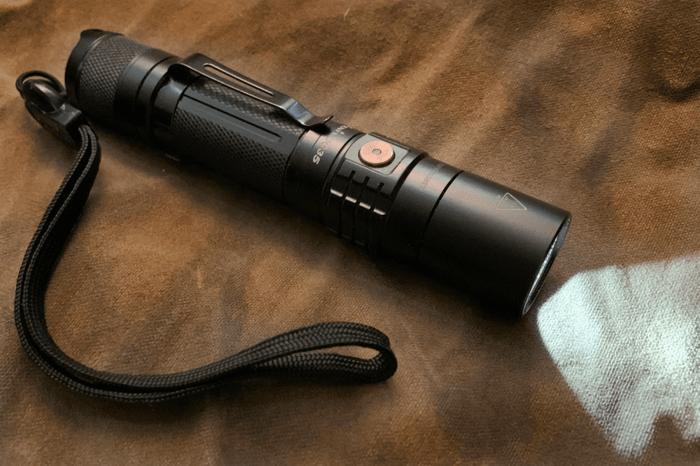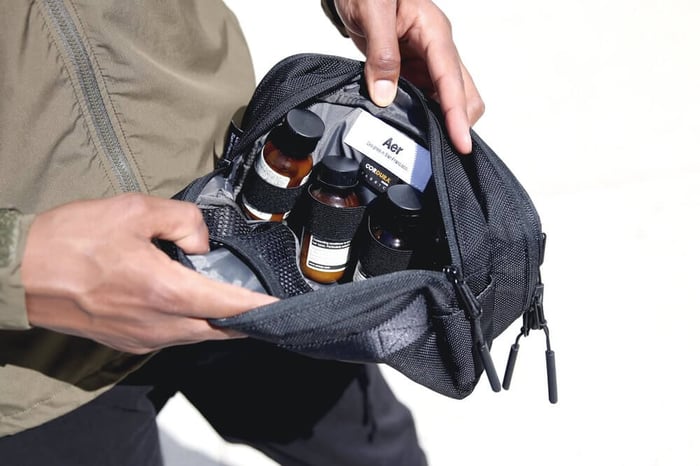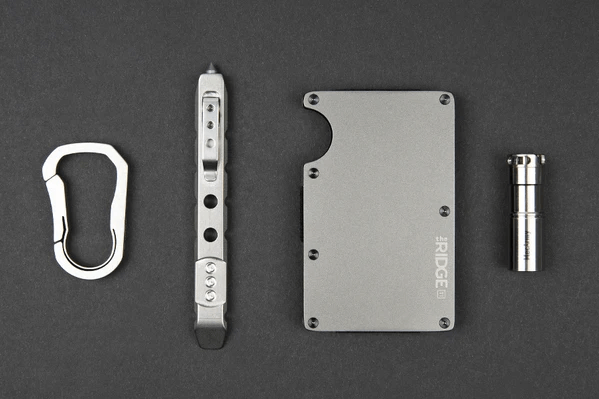 Detective David Mills (Brad Pitt) breaks out a flashlight for some light reading while tracking down a serial killer using the seven deadly sins as a motif in his murders in Seven (1995).
Detective David Mills (Brad Pitt) breaks out a flashlight for some light reading while tracking down a serial killer using the seven deadly sins as a motif in his murders in Seven (1995).
THE FLASHLIGHT: A SHORT HISTORY
Since man first learned to control fire 2 million years ago, man has enjoyed the assistance of additional light beyond that which is provided by the sun from dawn till dusk. So, soon thereafter, man discovered how to transport said fire with a tool that allowed him to bring light into dark spaces at any hour, day or night. He called this tool a “torch”.
Flash forward to 1899. Man innovates again, creating the first battery-powered portable light from the same parts used to make the wet cell and the miniature incandescent electric lamp. For the next century, miniature incandescent bulbs are the tried, true, and preferred choice for our beloved portable handheld electric lights. Our “flashlights”.
Enter the 2000’s. The era of the incandescent bulb has come to an end and the era of the LED (Light-Emitting Diode) has just begun. Smaller, brighter, tougher, more efficient (with a much better battery consumption), and able to provide far greater impact resistance, the modern LED everyday carry flashlight is superior to its incandescent light bulb predecessor on every conceivable level.
Today there is a flashlight for the needs of every kind of Gallantry man, as the product itself is highly malleable and adaptable for many special uses. Whether you’re camping, mining, deep-sea diving, making your way through a flammable atmosphere, or just reading in the dark, Gallantry carries a wide assortment of flashlights to suit your EDC needs.
A Gallantry Man is a prepared man, so for those times when electric-power light sources aren’t at your disposal, we’ve got you covered.
AN INTRODUCTION TO THE EDC FLASHLIGHT
THE LUMEN
A lumen is a unit measure of the total amount of visible light emitted by your flashlight, while an OTF lumen is the actual amount of light emitted out in front of the light. As a general rule of thumb, the more lumens your light has, the more power it has behind it.
Since illumination is the most basic function of any EDC light, understanding lumens is a great starting point. Most EDC flashlights are in the 50-1000 lumen range, so consider how you plan to use your light when determining how many lumens you require.
Here’s a brief snapshot breaking down ideal lumens for various activities:
1-20 lumens = Ideal for keyholes, navigating dark spaces and reading maps.
20-35 lumens = Suitable for general garage and home use.
35-100 lumens = Perfect for the outdoors, including hiking or camping.
101-999 lumens = Apt for tactical duties, great for cops, firemen, and security guards.
1000+ lumens = Extreme missions, search, and rescue, caves, etc.
ANATOMY OF AN EDC FLASHLIGHT
Finding the right EDC flashlight starts with understanding its basic anatomy.
HEAD
Here you can find the light’s lens, a small window that protects the bulb and allows light to pass through it, its bezel, the outermost ring designed to protect the lens, its reflector (“mules” are flashlights without a reflector), which reflects light from the LED into a focused, usable beam (thus effecting the beam’s shape and quality), and, of course, the LED itself, which produces light when the voltage from a battery is applied.
Different LEDs have different sized dies (larger dies tend to put out more light with wider, floodier beams, whereas smaller dies put out less light with even more intense beams that throw farther). LEDs are named after their model number, version, and bin. The further into the alphabet and higher the number, the brighter the LED.
BEAM
The beam is why you have a flashlight on your everyday carry in the first place. It is the tangible byproduct of the light. To get a good look at a beam’s profile, simply shine it against the nearest white wall you can find.
Most modern flashlights create beams with a brightness that is most concentrated at its center, its hotspot, with a much bigger and slightly less intense ring surrounding it known as the spill.
Lastly, whereas a throwy (a throw is the distance a beam travels in order to still effectively shine light on an object) light has a higher beam intensity, a floody (a flood is the area that a light illuminates) light baths a wider area, in turn making it a better choice for those circumstances in which one is navigating closer surroundings.
BODY
This is where the battery is stored, where the thread connects the head to the tail, the part of the flashlight that you actually grip and hold onto. The construction is crucial because whether or not your light is pocket-friendly will determine its true functionality.
Materials matter, heavily factoring into a flashlight’s weight, general aesthetics, and durability amidst regular wear and tear occurrences like bumping and dropping.
Common materials include anodized aluminum (lightweight, strong, can perform in most environments), stainless steel (heavier than aluminum, but incredibly resilient and resistant to wear), titanium (also heavier, offers form, function, and appearance variety, and can be polished, bead blasted, or colored), and, last but not least, brass and copper (both develop unique patinas with time, making them popular for EDC enthusiasts specifically concerned with maintaining an attractive aesthetic).
The battery itself is responsible for a large portion of a light’s performance (i.e. size, runtime, brightness) and the most common types include AAA, AA, CR123A, and 18650. If you’re looking for a compact light, you will likely choose one that takes a single AA or CR123A battery (while the latter generates more power than the former due to its unique lithium chemistry and shelf-life, it is not as easily found in stores). In general, a AAA battery is the most compact, while a 18650 cell battery is the bulkiest.
TAIL
When you’re looking at the tail end of a light, you’re immediately going to notice its switch type. Most flashlights include a twisty switch (used for small or keychain-based lights, requires you to screw a lights head in order to activate your battery, then screw it off in order to disconnect your battery), a clicky switch (most common switch used for activation and navigation, can either work by being partially depressed or fully depressed, clicked, and released), and a side switch (saves light length while providing a discrete button). It is not only important that your new EDC flashlight is compatible with your unique needs, but also that it will not shake around and turn on in your pocket or bag.
ATTACHMENTS
Flashlight carry options depending on their weight, size, and features. The most common types include the ever-reliable pocket clip, the holster (which protects the light and is usually found on larger production lights in order to make belt or bag attachment possible), and, of course, the lanyard holes, the drilled tail spaces that allow for attachment of straps, and, thus, the ability to conveniently carry the light around your neck or keychain.
THE RIGHT LIGHT FOR YOU
 Dr. Ellie Sattler (Laure Dern) and Robert Muldoon (Bob Peck) use their beams to point out, um, something, to Dr. Ian Malcolm (Jeff Goldblum) in Jurassic Park (1993).
Dr. Ellie Sattler (Laure Dern) and Robert Muldoon (Bob Peck) use their beams to point out, um, something, to Dr. Ian Malcolm (Jeff Goldblum) in Jurassic Park (1993).
Finding your perfect light shouldn’t be a difficult, time-consuming process. It’s simple, really. Consider the following key elements, as honing in on these basics will help you make the best possible choice given your specific needs.
SIZE
It matters, so consider how you will be transporting your light. If it’s going in your pocket, don’t even think about going over 5 inches in length. Though a smaller light means less room for switches and buttons, an effective user interface will get the job done no matter what. A bag will buy you more space. Whatever size light you end up with, this is your EDC flashlight, so keeping your ergonomic situation tight and compact is key.
WATERPROOF RATING
You never know when you’ll need your EDC flashlight, so if the time strikes during a flood or rainstorm, having a flashlight that isn’t waterproof is about as useful as, well, not even having one on your person in the first place. You can identify a light’s waterproof rating by its IPX code, the standard testing for water resistance.
Speaking of waterproof…
THE ILLUMINEX-4S FROM MECARMY

You can’t go wrong with our most popular flashlight because the value of a reliable, evergreen flashlight cannot truly be measured. The fact that this one is small enough to fit on your keyring while still packing serious brightness makes it all the more special.
The next time you drop a tiny screw or need to take a peek under the hood of your vehicle in the middle of the night, believe us, your life will be much, much easier if you've got the IllumineX-4S from the tactical specialists at MecArmy's. Well-known in the EDC space for its finely built tools, the Illuminex-4S from MecArmy is prized by law enforcement and some of the world’s top outdoor explorers.
About the size of a AAA battery, this amazing flashlight easily packs 130-lumens of maximum output into its sleek anodized aluminum body. Add to that the fact that this light can be easily recharged via micro USB in only an hour, and you’ve got yourself what’s known as a “must-have” in the EDC community.
SPECIFICATIONS:
-
Anodized aluminum construction
-
CREE-XP G2 LED
-
130 lumens maximum output
-
High and low output modes
-
6-hour maximum runtime
-
10180 lithium-ion battery
-
Micro USB rechargeable in 1 hour
-
Simple twist switch operation
-
IPX8 waterproof to 2m
-
Impact-resistant to 1.5m
-
Micro USB cable not included
-
8.9g
-
1.61" L x 0.5" D
Available in Black, Blue, Gray and Red
IllumineX-4S
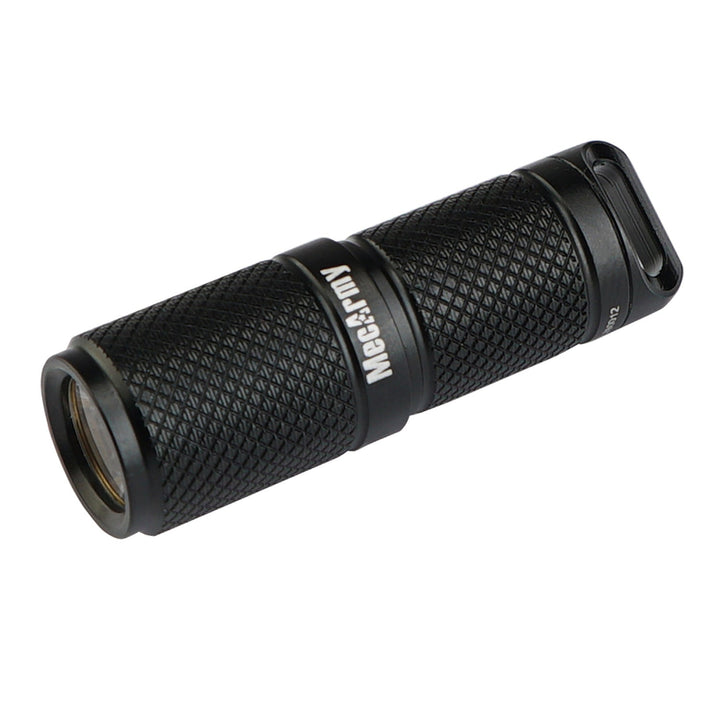
$23.99
[tab-section data-sc-active-background="#ffffff" data-sc-other-background="#ffffff" data-sc-color="#555555"][tab title="Details"] The value of a good flashlight is underrated. And one that's small enough to fit on your keyring while still packing some real brightness is all the more rare. The next time you drop a… read more
IllumineX-4S
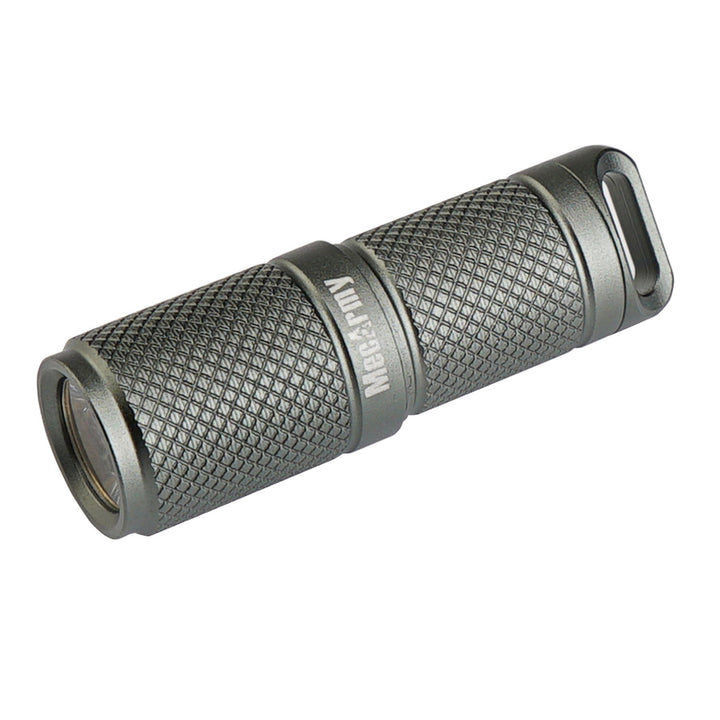
$23.99
[tab-section data-sc-active-background="#ffffff" data-sc-other-background="#ffffff" data-sc-color="#555555"][tab title="Details"] The value of a good flashlight is underrated. And one that's small enough to fit on your keyring while still packing some real brightness is all the more rare. The next time you drop a… read more
IllumineX-4S
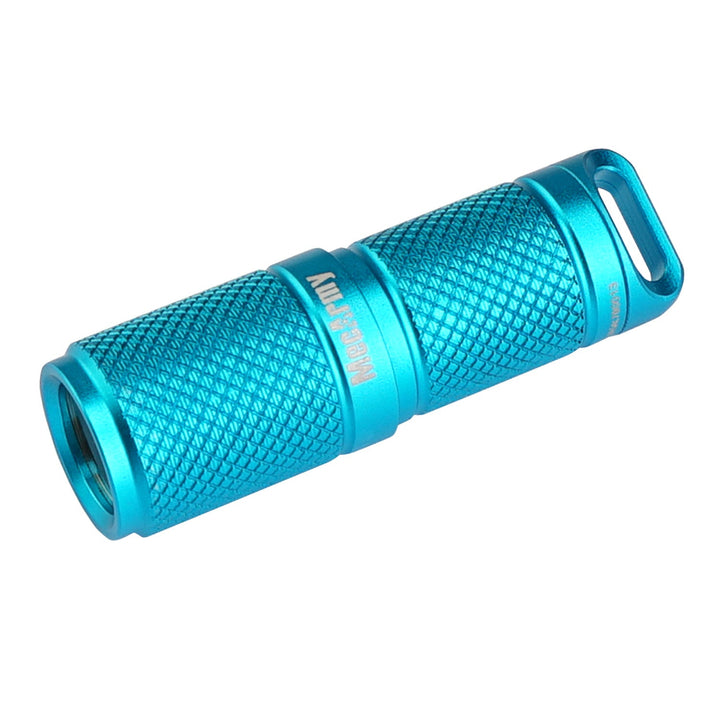
$23.99
[tab-section data-sc-active-background="#ffffff" data-sc-other-background="#ffffff" data-sc-color="#555555"][tab title="Details"] The value of a good flashlight is underrated. And one that's small enough to fit on your keyring while still packing some real brightness is all the more rare. The next time you drop a… read more
IllumineX-4S
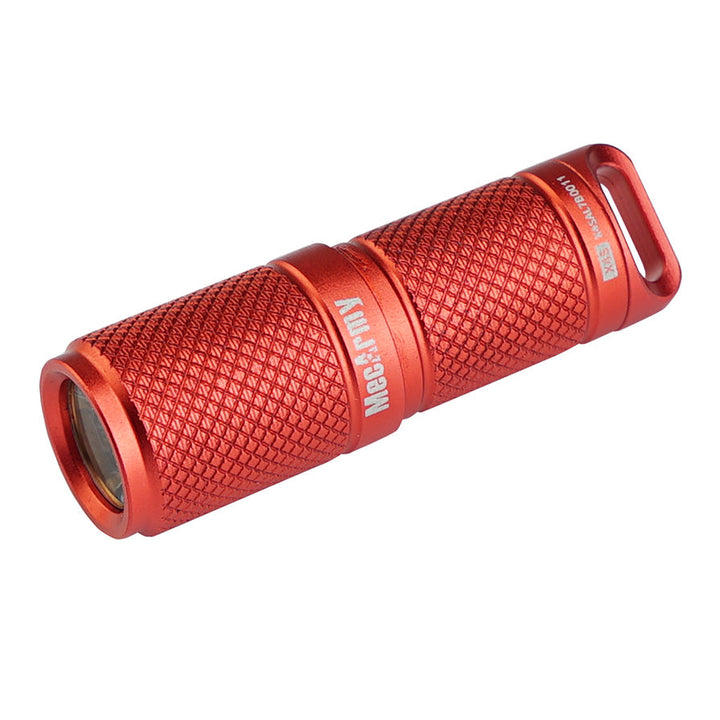
$23.99
[tab-section data-sc-active-background="#ffffff" data-sc-other-background="#ffffff" data-sc-color="#555555"][tab title="Details"] The value of a good flashlight is underrated. And one that's small enough to fit on your keyring while still packing some real brightness is all the more rare. The next time you drop a… read more
WEIGHT
As with any EDC item, you’re most likely looking for an item that provides maximum utility at the lightest weight possible. You’re not buying a flashlight to build muscle, so keeping it under 5 ounces is a safe bet.
BEAM FEATURES
Whether you want an adjustable beam to increase the versatility of your flashlight or a specific beam mode to boost your light’s ability to signal (for example, if you ever need to communicate a need for help in the dark), these features can really enhance your light.
SHOCK RESISTANCE
If you’re a hardcore survivalist, this feature is non-negotiable. Just check to make sure the light you’re interested in has passed the ANSI FL1 standards because that means it can take a beating like you wouldn’t even believe.
LIGHT IT UP
 Beam Me Up Scotty
Beam Me Up Scotty
At the end of the day, you just want to have the perfect light on you, one capable of handling the tasks that you’ll inevitably - intentionally or unintentionally - put before it. You have high standards and, as such, you deserve an efficient, reliable, comfortable, high-quality, high-performing flashlight with a solid run-time that works for you (without impeding your movement or interfering with your style, that is).
We know there are a lot of flashlights out there to choose from, but hopefully, you now have a solid grasp of the basics of EDC flashlights and you’re ready to add one to your amazing (and growing) everyday carry collection.
Like your wallet, keys, knife, and cell phone, having a good flashlight on you is something you will literally never regret. From daily tasks to survival emergency scenarios, you’ll be prepared for whatever action comes your way.
Being prepared, after all, is what makes you a Gallantry Man.
STREAMING THE EDC FLASHLIGHT
 The Bride (Uma Thurman), having wisely chosen to be buried alive with a flashlight instead of a can of mace, prepares to Pai Mei her way out of a wooden coffin in Kill Bill: Volume 2 (2004)
The Bride (Uma Thurman), having wisely chosen to be buried alive with a flashlight instead of a can of mace, prepares to Pai Mei her way out of a wooden coffin in Kill Bill: Volume 2 (2004)
Having already crossed two names from her revenge death list, The Bride (Uma Thurman) runs into her first major setback in her quest for justice after tracking down her former boss’s brother, Budd (Michael Madsen). If you’ve never seen the scene where Bud takes his own twisted form of mercy on The Bride by at least giving her the courtesy of burying her alive with an EDC essential, we highly recommend that you do.
To get even more amped about the newest addition to your own EDC collection, be sure to add CINEMAX® to your existing Hulu plan (or start a free trial) and prepare to get lit!



